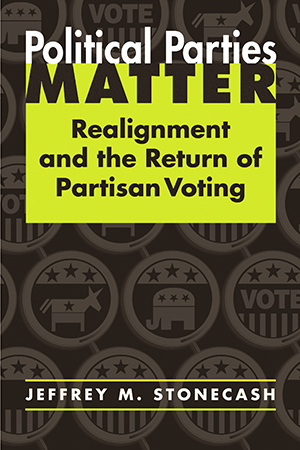Jeffrey M. Stonecash
Choice Outstanding Academic Book!
After years of decline, why has party attachment become a strong force once again in US politics? Jeffrey Stonecash argues that the recent resurgence of partisanship is but the latest chapter in a larger story of party realignment —a story that reaffirms the centrality of political parties.
Stonecash marshals rich data from more than a century of elections to highlight unexpected patterns of voting behavior with key significance today. As party constituencies continue to reorganize, he contends convincingly, the United States will face the strengthening of party attachments and growing political polarization.
Jeffrey M. Stonecash is professor of political science at Syracuse University. His publications include Class and Party in American Politics and Political Polling.
"[A] comprehensive look at American political parties and partisan change through a century of volatile politics."—Mary P. McGuire, Political Science Quarterly
"This book will be an excellent supplement to courses in American parties and American politics generally. The author's use of a long-term perspective, clear statements of the issues, and effective use of charts and tables provide a paradigm of how argument in the discipline should proceed. Essential."—Choice
"A fresh and compelling view on partisan change.... Creative and insightful." —Harold W. Stanley, Southern Methodist University
"An excellent and useful contribution to the study of political parties, particularly to the debate about realignment. The data analysis is especially thought-provoking."—Arthur Paulson, Southern Connecticut University






